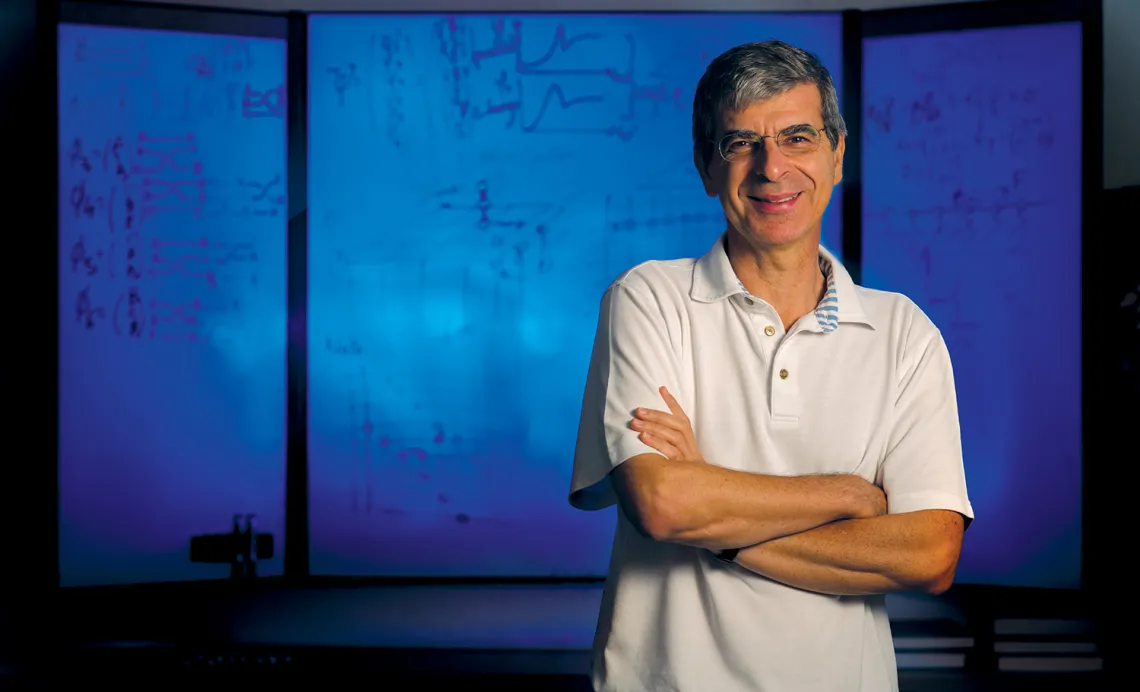Breakthroughs Now, Stability Later
Engineering’s parallel paths

Pierre Deymier
Two recent gifts are contributing to the future of engineering: One provides an opportunity to usher in a new era of computing technology. The other builds the College of Engineering’s financial foundation for today’s students and coming generations.
The Sound of the Future: The Quantum Computing Race
A $900,000 grant from the W.M. Keck Foundation, matched by the University of Arizona, has given a team led by professor Pierre Deymier $1.8 million to build a quantum computing prototype. The team hopes to outperform existing quantum computers and overcome problems that plague prototypes.
This award is especially valuable because many funders won’t invest in approaches so innovative they haven’t yet been proven, says Jeffrey Goldberg, dean of the College of Engineering. The team secured funding from the “outrageously selective” foundation with a credible demonstration of how sound could be used in quantum computing, Goldberg says.
As computer parts grow tinier — billions of transistors are now packed onto silicon chips the size of a fingernail — silicon’s performance shrinks, too, and the material can overheat. To address this, engineers are in a race to perfect quantum computers, which store, transmit and process information in fundamentally different ways and have exponentially greater computing capability.
Deymier, head of the Department of Materials Science and Engineering, is a pioneer in the field of phononics, in which scientists and engineers manipulate phonons, quasi-particles that transmit sound and heat waves in unconventional ways to provide new forms of energy. He believes that quantum computing with phononics will be feasible, possibly in the next 10 years. With his collaborators on the project, Pierre Lucas and Keith Runge, Deymier will build a prototype phonon-based computer.
“Phonon-based computing has the power to change the world as we know it,” he says, “not just for making more powerful computers, but for artificial intelligence, cryptography and analysis of big data.”
According to Deymier, the potential of phi-bits — a term he has coined for a unit of phonons — to transform computing capability and manage big data appears limitless. He is working with Tech Launch Arizona, the UA’s commercialization arm, to apply for multiple patents for phi-bit inventions, including the quantum computer itself.
